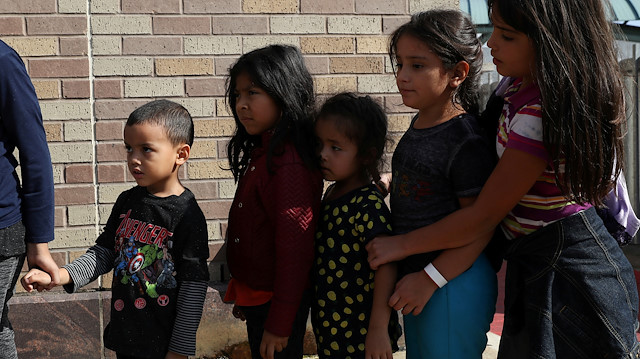
Over 100,000 children in migration-related detention, says author of report
The U.S. has the world's highest rate of children in detention, the author of a UN study said.
"The United States is one of the countries with the highest numbers - we still have more than 100,000 children in migration-related detention in the [U.S.]," Manfred Nowak, an independent expert leading the UN Global Study on Children Deprived, said in a news briefing on Monday, cited by Al Jazeera.
"Of course, separating children, as was done by the Trump administration, from their parents and even small children at the Mexican-US border is absolutely prohibited by the Convention on the Rights of the Child," Nowak said. "I would call it inhuman treatment for both the parents and the children."
"The way they were separating infants from families only in order to deter irregular migration from Central America to the United States to me constitutes inhuman treatment, and that is absolutely prohibited by the two treaties," he said.
The U.S. detains an average of 60 out of every 100,000 children in its justice system or immigration-related custody, according to his study.
The expert stressed that more than 7 million people under the age of 18 are held in jails and police custody worldwide, including 330,000 in immigration detention centers.
Bolivia, Botswana and Sri Lanka follow the U.S. with their high rates of children in detention.
Mexico also has high numbers, with 18,000 children in immigration-related detention and 7,000 in prisons, he added, referring to it as the country where most Central American migrants seek for the U.S. asylum.
Nowak also compared the U.S. rate to an average of five per 100,000 children in Western Europe and 14-15 per 100,000 in Canada.
Droves of migrants from Central American countries try each year to cross the treacherous deserts and rivers on the way to the U.S. in a bid to flee violence and poverty in their home countries.
President Donald Trump has pursued a hardline approach to immigration, both legal and illegal, since coming to the office and Washington signed a safe third country agreement with Guatemala in late July and with El Salvador mid-September.
The safe third-country agreement forces Central American migrants to apply for asylum in the signed country and be processed in that country before they can seek asylum in the U.S., even though under U.S. laws migrants are allowed to apply for asylum within the country or at the official ports of entry.
Although Mexico rejected such a deal, it reached another one in June with the U.S. administration following a tariff which obligates the country to reduce the immigration flow.


